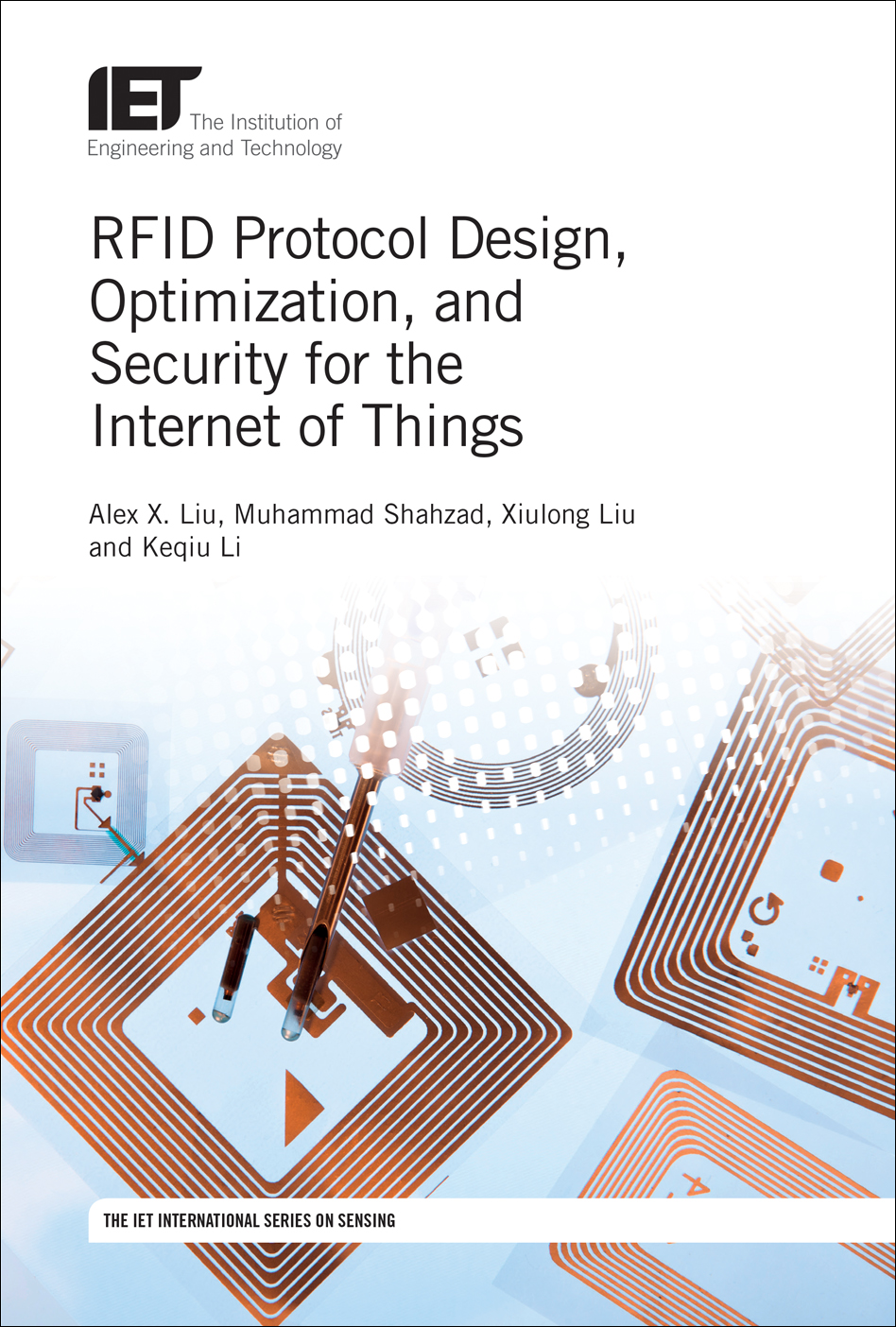- Agricultural Engineering and Technology
- Applied Physics
- Built Environment
- Computing and Networks
- Control, Robotics and Sensors
- Electrical Regulations
- Electromagnetics and Radar
- Energy Engineering
- Healthcare Technologies
- History and Management of Technology
- IET Codes and Guidance
- Manufacturing
- Materials, Circuits and Devices
- Model Forms
- Security
- Telecommunications
- Transportation

RFID Protocol Design, Optimization, and Security for the Internet of Things
by Alex X. Liu, Muhammad Shahzad, Xiulong Liu, Keqiu Li
Radio-frequency identification (RFID) uses electromagnetic fields to automatically identify and track tags attached to objects. The tags contain electronically stored information. RFIDs have been widely used in countless applications such as object tracking, 3D positioning, indoor localization, supply chain management, automotive, inventory control, anti-theft, anti-counterfeit, and access control. The Internet of Things (IoT) promises a huge growth in RFID technology and usage.
This book covers the topic of RFID protocol design, optimization, and security. RFID systems allow for a much easier and error free inventory management and tracking, but the probabilistic nature of RFID protocols makes the design and optimization complex and challenging. Most existing commercial RFID systems are not well designed. In this book, the authors aim to demystify complicated RFID protocols and explain in depth the principles, techniques, and practices in designing and optimizing them.
About the Author
Alex X. Liu is a Professor of Michigan State University, Department of Computer Science and Engineering, East Lansing, Michigan, USA.
Muhammad Shahzad is an Assistant Professor of North Carolina State University, Department of Computer Science, Raleigh, North Carolina, USA.
Xiulong Liu is a Postdoctoral Fellow at The Hong Kong Polytechnic University, Department of Computing, Hong Kong, China.
Keqiu Li is a Professor and the Dean of the School of Computer Software at Tianjin University, Tianjin, China.
Publication Year: 2017
Pages: 272
ISBN-13: 978-1-78561-332-6
Format: HBK
